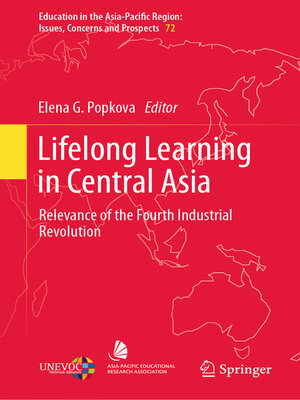Lifelong Learning in Central Asia
ebook ∣ Relevance of the Fourth Industrial Revolution · Education in the Asia-Pacific Region: Issues, Concerns and Prospects
By Elena G. Popkova

Sign up to save your library
With an OverDrive account, you can save your favorite libraries for at-a-glance information about availability. Find out more about OverDrive accounts.
Find this title in Libby, the library reading app by OverDrive.



Search for a digital library with this title
Title found at these libraries:
| Library Name | Distance |
|---|---|
| Loading... |
The book focuses on the issue of adapting the higher education system to the Fourth Industrial Revolution. Lifelong learning is suggested as a prospective path for this adaptation. The book includes a discussion of empirical experience and the forms of lifelong learning in Central Asia. The book also explains the essence, discusses practical experience, and offers practical recommendations for improving the management of the development of Educational Technology (EdTech) and higher education 4.0 in the conditions of the Fourth Industrial Revolution in Central Asia. The book explains the impact of the innovative economy and smart regulation of education on lifelong learning in Central Asia. It offers a competency-based approach and applied educational technologies for lifelong learning in the Central Asian countries.
The book's novelty lies in its comprehensive exploration and detailed discussion of the unique experience of developing lifelong learning in Central Asia. The scientific and practical value of the book also lies in its proposal of a new paradigm for developing higher education in the Fourth Industrial Revolution. In this new paradigm, the higher education system emerged as the driving force of the Fourth Industrial Revolution through establishing Universities 4.0 and the intensified development of EdTech. The primary target audience of this book consists of scholars studying higher education issues. For them, the book reevaluates the concept of lifelong learning in the contemporary context of the Fourth Industrial Revolution.







